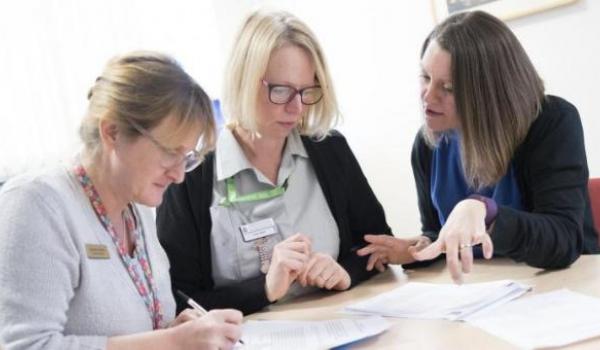Minimally Invasive Robotic Surgery, Role in Optimal Debulking Ovarian Cancer, Recovery and Survival (MIRRORS)
Who can take part
Please note - unless we state otherwise in the summary, you need to talk to your doctor about joining a trial.
The MIRRORS trial is now closed to new participants. However the researchers are looking for people to complete a survey on their opinions of robotic surgery for ovarian cancer. The information gained from this survey will help shape the next part of the research project which will be a randomised controlled trial.
The survey can be completed by:
- women who have had or are living with ovarian cancer
- people who know someone who has been treated for ovarian cancer
- health professionals who look after women with ovarian cancer or have other interests in ovarian cancer or robotic surgery
Find more information and complete the survey.
You may be able to take part in this clinical trial if you:
- are aged 18 years or over and
- have stage IIIC–IVB ovarian cancer (including fallopian tube and peritoneal cancer) and are having treatment with neo-adjuvant chemotherapy
- are considered suitable for interval debulking surgery
- have a pelvic mass that measures 8cm or less
This is not an exhaustive list. If you're interested in participating in a clinical trial, you should speak to your doctor about what other criteria might apply.
About the trial
Ovarian cancer surgery is usually performed by making an incision (cut) that goes up and down on the abdomen. This is known as a laparotomy (or open surgery). A laparotomy is a complex operation and can result in complications that prevent or delay women receiving further chemotherapy.
Laparoscopic surgery (also known as keyhole surgery) requires much smaller incisions on the skin and can result in shorter recovery times. Robotic laparoscopic surgery is where a surgeon does the operation but uses a special machine (robot) to help. Laparoscopic surgery is not routinely used for ovarian cancer surgery. In this feasibility study researchers want to find out more about using robotic laparoscopic surgery in ovarian cancer treatment.
They want to find out if:
- women are willing to consent to having interval debulking surgery performed by the robotic laparoscopic approach
- doing robotic laparoscopic ovarian cancer surgery helps to improve recovery times and quality of life compared to laparotomy (open surgery)
Researchers will then look at using the information gained from this study to do a randomised controlled trial to see whether laparotomy or robotic laparoscopic surgery is the best way of doing ovarian cancer surgery.
What happens if I agree to take part in the study?
To be involved in the MIRRORS study, you'll be asked to:
- complete questionnaires, before surgery, the day after surgery, three weeks and three months after surgery.
- take part in an audio recorded interview about your quality of life, recovery from the operation and your experiences in the study. This information will be stored anonymously (you can’t be identified).
At the start of your operation, your surgeon will do a laparoscopic assessment of your cancer. This is to see if it's possible to continue the surgery with the robotic laparoscopic approach. Based on what the surgeons sees during the assessment they'll make the decision to either:
- continue the operation using the robotic laparoscopic approach.
- convert to laparotomy (open surgery).
It may occasionally be necessary for the surgeon to finish the operation by making a laparotomy incision.
After your operation, you'll be asked to:
- complete questionnaires, the day after surgery and three months after surgery.
- take part in an audio recorded interview about your quality of life, recovery from the operation and your experiences in the study. This information will be stored anonymously (you can’t be identified).



